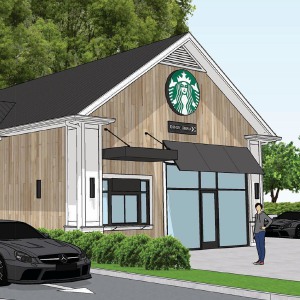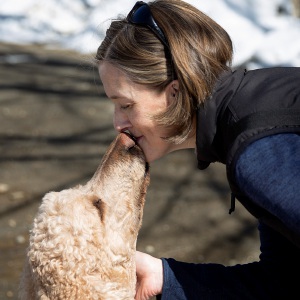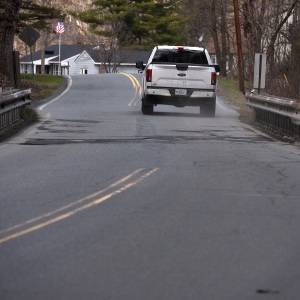Vt. advocates call for stronger school mascot laws
| Published: 03-26-2023 9:17 PM |
Advocates are urging the Vermont Legislature to change a state law around school mascots, saying in a statement that the current legislation does not protect students and has “failed.”
The statement, which was signed by 51 advocates, including 16 lawmakers, called for the Legislature to amend Act 152, a law passed last year that was intended to abolish school mascots based on offensive stereotypes.
“Ultimately, the law as interpreted by (the Agency of Education) allows only for discussion and decisions to be kept in the hands of those unqualified to identify the racism, appropriation and denigration of people who have been dehumanized for centuries,” the statement read. “It is imperative that stronger language be enacted in Vermont state law to prohibit any state agency from further complicating the main objective: to keep all children safe.”
The Rutland Area NAACP sent the statement via email Monday. In that email, the organization said that neither Mia Schultz, its president, nor Judy Dow, the executive director of Indigenous advocacy nonprofit Gedakina, would be available for media interviews “because they have not been beneficial in this process.”
Schultz and Dow have been at the forefront of recent efforts to retire school mascots they deemed inappropriate. Theirs were the first names on the statement’s list of signatories. Neither responded to emails or phone calls seeking comment.
The advocates “hope that less of this becomes press fodder and more of this becomes a true investigation within each district, with a determination that can then be followed up on,” Monday’s email said.
Under Act 152, school boards are required to adopt policies that ban “school branding” based on stereotypes or representations of “race, creed, color, national origin, sexual orientation, or gender identity” or any entities “associated with the repression of others.”
Anyone who believes that a school mascot, logo, slogan, or other form of branding violates those standards can file a complaint with a school board, which will make a decision. If the petitioners are unsatisfied with a school board’s decision, they can appeal to the state secretary of education, who has the final say.
Article continues after...
Yesterday's Most Read Articles
 Starbucks store planned for Route 120 at Centerra
Starbucks store planned for Route 120 at Centerra
 Enterprise: Upper Valley pet sitters discuss business growth, needs
Enterprise: Upper Valley pet sitters discuss business growth, needs
 A Life: Priscilla Sears ‘was bold enough to be very demanding’
A Life: Priscilla Sears ‘was bold enough to be very demanding’
 2024 Upper Valley high school baseball guide
2024 Upper Valley high school baseball guide
 Canaan Elementary School has new principal
Canaan Elementary School has new principal
But, in their statement Monday, advocates argued that the law as written places the responsibility on complainants, rather than education officials, to effect change.
“Instead of placing any corrective burden on school districts, (the current law) burdens individuals with expertise … to defend themselves at each individual school district from those with limited knowledge and no lived and trained experience in this area,” the advocates wrote.
The letter comes roughly one month after Dow and Schultz filed a series of formal complaints against school mascots.
In a letter sent to Vermont Secretary of Education Dan French earlier this year, Dow and Schultz argued that a number of school mascots — including Missisquoi Valley Union Middle and High School’s Thunderbirds and Vermont Commons School’s Flying Turtles — were “upholding harmful legacies that continue to harm our children.”
But in their statement, advocates said that the complaint process was deeply flawed. In their bids to retire the mascots, Dow and Schultz “were met with arduous processes that required them to appeal to individual local school districts, each with different policies requiring in-person meetings and formal presentations,” the statement reads.
In at least one district, the advocates’ bid to retire a mascot has been met with pushback. Earlier this month, the Abenaki Nation of Missisquoi issued a statement in defense of Missisquoi Valley’s Thunderbirds, saying the mascot’s adoption was, in fact, “a welcome acknowledgement of the important history of this area’s indigenous people.”
The push has also led to some confusion about which complaints were official and which weren’t.
Last month’s letter identified eight schools by name: In addition to Missisquoi Valley and Vermont Commons School, the organizations issued complaints about Brattleboro Union High School’s Colonels, Leland and Gray Union Middle and High School’s Rebels, Randolph Union High School’s Galloping Ghosts, Green Mountain Union High School’s Chieftains, and the Raiders, which are mascots at Stowe High School and U-32 Middle and High School.
It also noted that some unidentified Vermont schools had “mascot names associated with violence,” such as the Minutemen, Marauders, and Patriots. But in an interview at the time, Schultz said that only the named schools were the subject of formal complaints, although the groups had contacted other schools where the mascots fell into that category.
“In my mind, those aren’t necessarily formal complaints that we’re making,” Schultz said. “We’re just saying, listen, maybe it’s time to start thinking about that.”
“But the formal complaints are the ones that are highlighted specifically by school,” she said.
Officials from at least some of those schools have started to examine their mascots.
Monday’s statement, however, said that Dow and Schultz had “identified fifteen public schools that violate the goals of this law” in January. It was not clear what those 15 schools were.
If lawmakers do decide to take up the issue, it will likely have to wait until next year. The advocates’ statement came the Monday after the legislative crossover deadline. If a bill does not pass out of a committee by that date, it generally cannot become law in the same year.

 City plans to widen and replace bridge on Trues Brook Road
City plans to widen and replace bridge on Trues Brook Road
